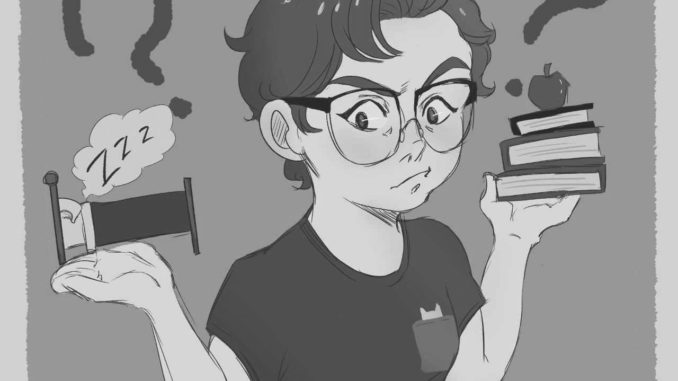
EDITORIAL
As the days spent at school and work linger on, the majority of Americans find themselves longing for when they can finally lie down to sleep. What should be a night of a well-timed sleep, is becoming shorter and shorter for many. We at “The Ranger” know all too well the frustration of unhealthy sleeping and feel that our readers do too.
For members of the student and working-class to be successful, it is crucial to get a healthy amount of sleep every night and to make scheduling sleep a high priority. But ironically, it is the student and working classes who have some of the highest rates of sleep problems.
The National Sleep Foundation stated that 59 percent of 18 to 29-year-olds describe themselves as “night-owls,” unable to get to sleep at proper times and often having to force themselves awake much earlier. Sleep problems have been proven to cause detrimental issues, such as academic failure, drowsy driving, poor health and even depression.
The consequences of unhealthy sleep are not a recent discovery and have been drilled into our heads since grade school; however, a feeling of disgrace, and oftentimes guilt, still lingers when one feels overly tired from a sleepless night or when their work suffers due to lack of sleep.
In many cultures, such as Japan, daytime napping is often used and encouraged to promote improved work performance. In America, however, there seems to be quite aggressive behavior toward drowsiness in school and work environments.
In contrast, a study done on prioritizing sleep by Masaya Takahashi revealed the need to modify schedules to account for healthy sleeping, She found that planned naps “are recognized as a promising technique in maintaining job performance and alertness” while also improving cognitive function.
Sacrificing sleep, or feeling guilty for being sleepy, should no longer be an option. It is not worth the happiness and health of the average student or worker to treat sleep as an afterthought and napping as a luxury. Though it may seem like a small detail, these crucial activities are just as important as eating or socializing and should be prioritized if one ever hopes to succeed in achieving their aspirations. A sleepy person is not a lazy one, they are merely being held back from their true potential. Don’t feel bad the next time you “just need to rest your eyes for a few minutes.”

Leave a Reply